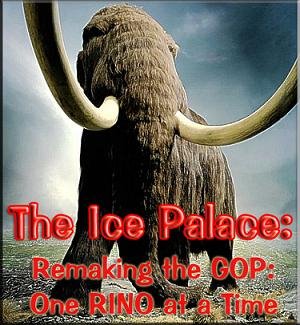The Oklahoma Awakening
‘The powers not delegated to the United States by the Constitution, nor prohibited by it to the States, are reserved to the States respectively, or to the people.’
-Tenth Amendment to the Constitution of the United States of America
The Tenth Amendment, which is supposed to hold weight equal to the First, Second and every other Amendment to the United States Constitution, has in the last 80 years been regarded as “a nice idea” but optional. This has resulted in usurpation of powers from the States in everything from health care to education (and everything in between).
Far from being taken seriously, the Tenth Amendment has become the red-headed stepchild of the Constitution, and has been ignored with impunity by the Federal government.
There is a movement afoot in Oklahoma, however, to rectify the situation:
Oklahomans are trying to recover some of their lost state sovereignty by House Joint Resolution 1089, introduced by State Rep. Charles Key.The resolution’s language, in part, reads: “Whereas, the Tenth Amendment to the Constitution of the United States reads as follows: ‘The powers not delegated to the United States by the Constitution, nor prohibited by it to the States, are reserved to the States respectively, or to the people.’; and Whereas, the Tenth Amendment defines the total scope of federal power as being that specifically granted by the Constitution of the United States and no more; and whereas, the scope of power defined by the Tenth Amendment means that the federal government was created by the states specifically to be an agent of the states; and Whereas, today, in 2008, the states are demonstrably treated as agents of the federal government. … Now, therefore, be it resolved by the House of Representatives and the Senate of the 2nd session of the 51st Oklahoma Legislature: that the State of Oklahoma hereby claims sovereignty under the Tenth Amendment to the Constitution of the United States over all powers not otherwise enumerated and granted to the federal government by the Constitution of the United States. That this serve as Notice and Demand to the federal government, as our agent, to cease and desist, effective immediately, mandates that are beyond the scope of these constitutionally delegated powers.”
The measure passed overwhelmingly in the Oklahoma State House of Representatives, but was hung up in the State Senate (sound familiar?) However, Representative Charles Kay plans to re-introduce the measure when the Oklahoma State House reconvenes next year.
What would upholding the Tenth Amendment entail? Walter E. Williams writes,
Federal usurpation goes beyond anything the Constitution’s framers would have imagined. James Madison, explaining the constitution, in Federalist Paper 45, said, “The powers delegated … to the federal government are few and defined. Those which are to remain in the State governments are numerous and indefinite. The former will be exercised principally on external objects, [such] as war, peace, negotiation, and foreign commerce. … The powers reserved to the several States will extend to all the objects which, in the ordinary course of affairs, concern the lives, liberties, and properties of the people.” Thomas Jefferson emphasized that the states are not “subordinate” to the national government, but rather the two are “coordinate departments of one simple and integral whole. … The one is the domestic, the other the foreign branch of the same government.”
Of course, the eye of the needle through which the camel squeezed its head was the Fourteenth Amendment, which gave the Federal government the authority to regulate interstate commerce. All well and good; however, meaning of the term “commerce” has been twisted and manipulated to not only cover business transactions between residents of different states, but everything else under the sun:
These scholars interpret interstate commerce to mean “substantial interstate human relations” and find this consistent with the meaning of commerce at the time of the writing of the Constitution. They also argue that this expansive interpretation makes more sense for the foreign and Indian commerce clauses as one would expect Congress to be given authority to regulate non-economic relations with other nations and with Indian tribes.
This ‘liberal translation’ of the term, ‘commerce,’ of course, flies in the face of Jefferson’s writings; which is SOP for liberals, who true to their moniker often take great liberty in using the words of the Constitution as so much silly puddy to bend and shape their meaning to fit their cause d’jour. This led to the creation of FDR’s “New Deal,” which led to the notion that the government pretty much had the right to step in to any situation, for any reason, if there was any indication of interstate commerce whatsoever. While minor shifts toward state’s rights have occurred in between, the Federal Government still maintains overwhelming authority over areas of our lives in which they Constitutionally have no business to regulate.
This could be the start of a groundswell of opportunity to defeat Federal usurpation of power, and to once and for all defeat the federal imposition of liberalism and its even uglier cousin, socialism. I look forward to a Republican legislator from my home state of Minnesota to take up this mantle (I know it won’t be a democrat).



|